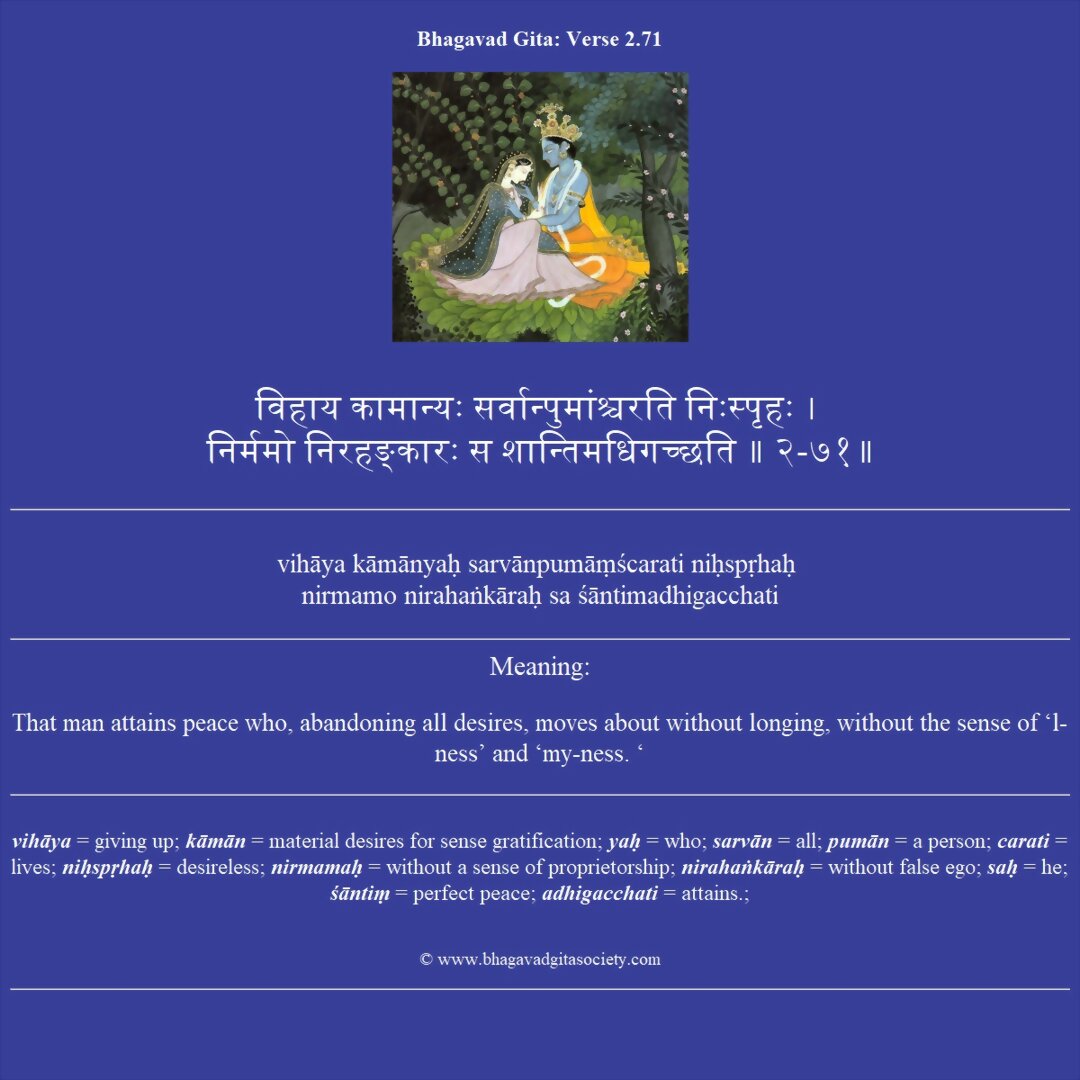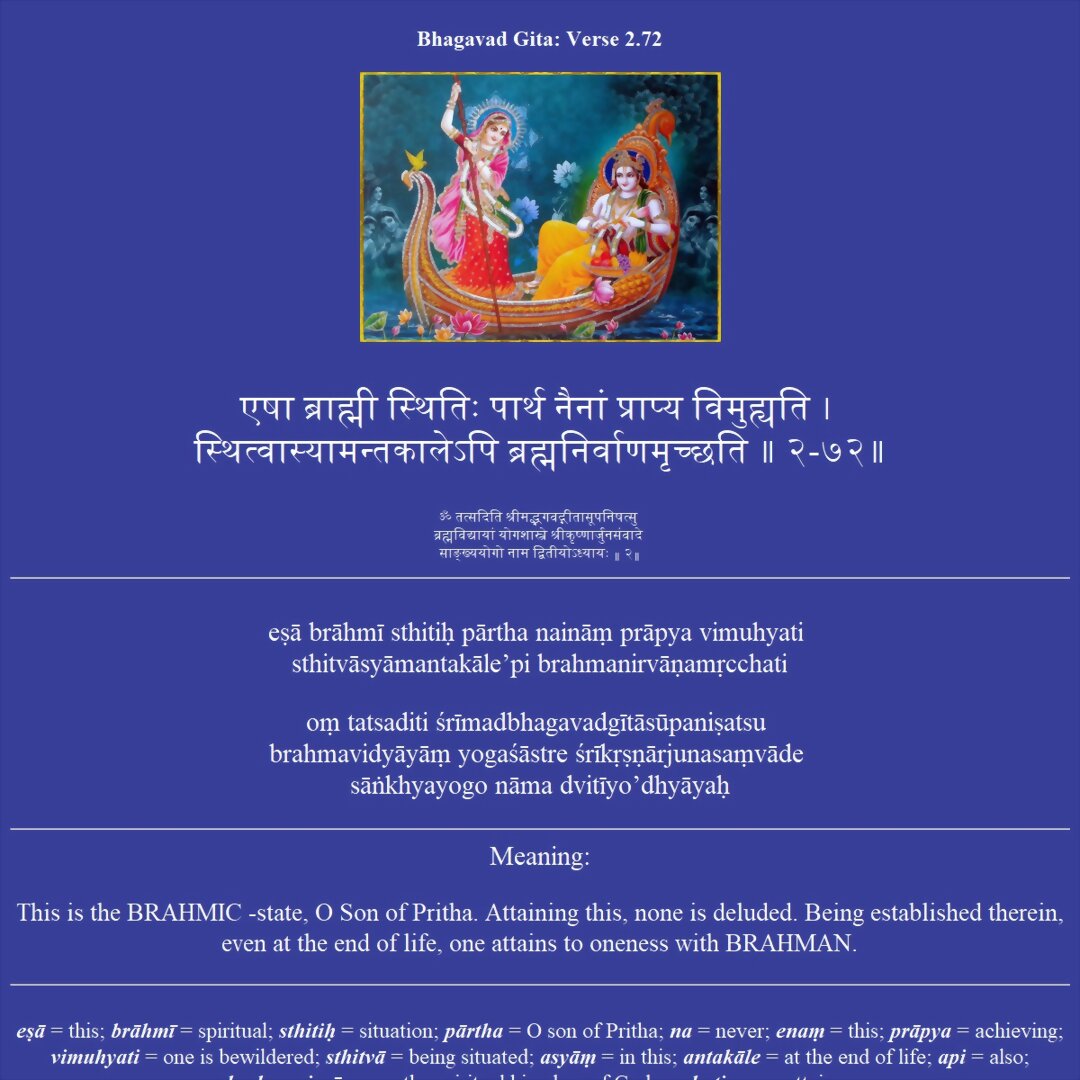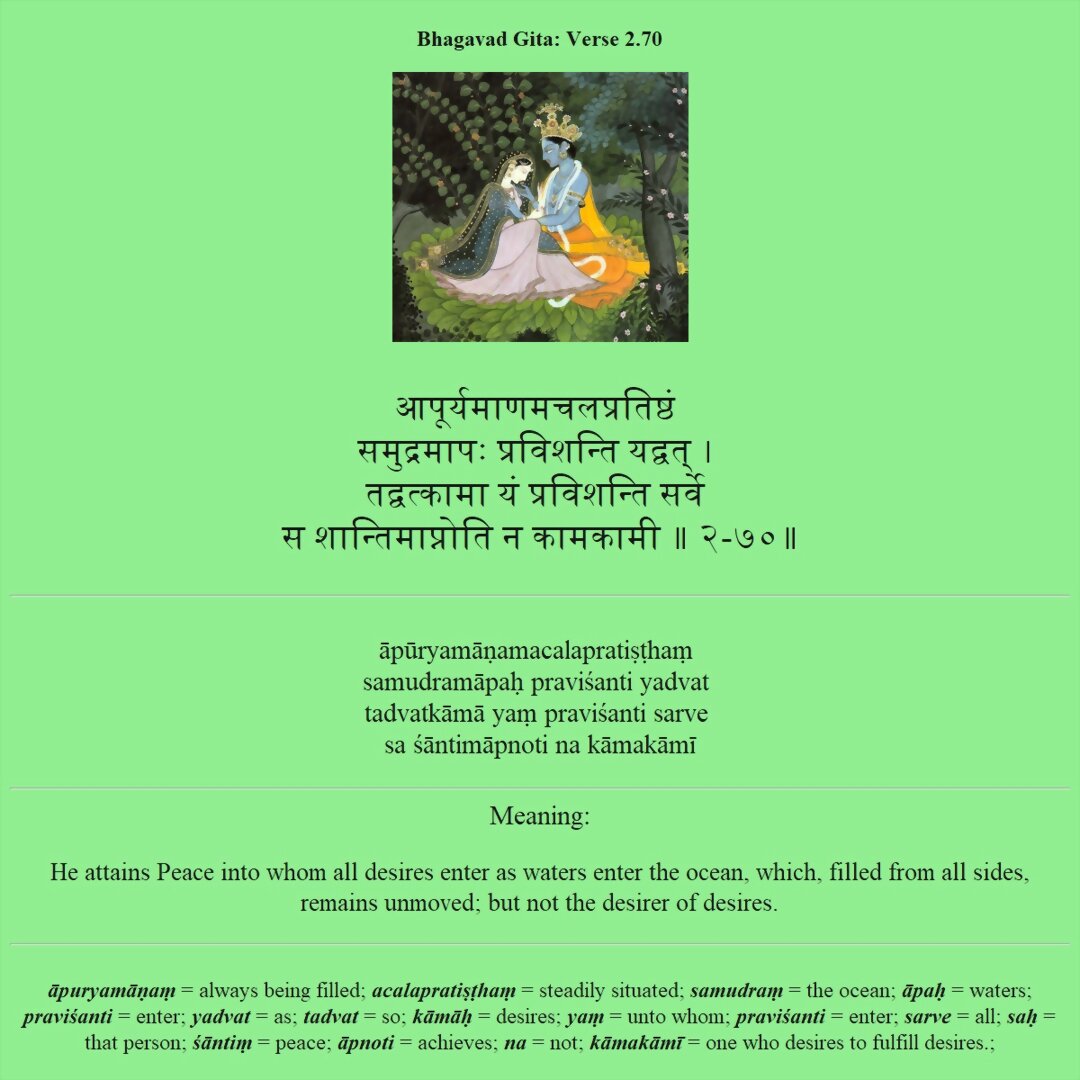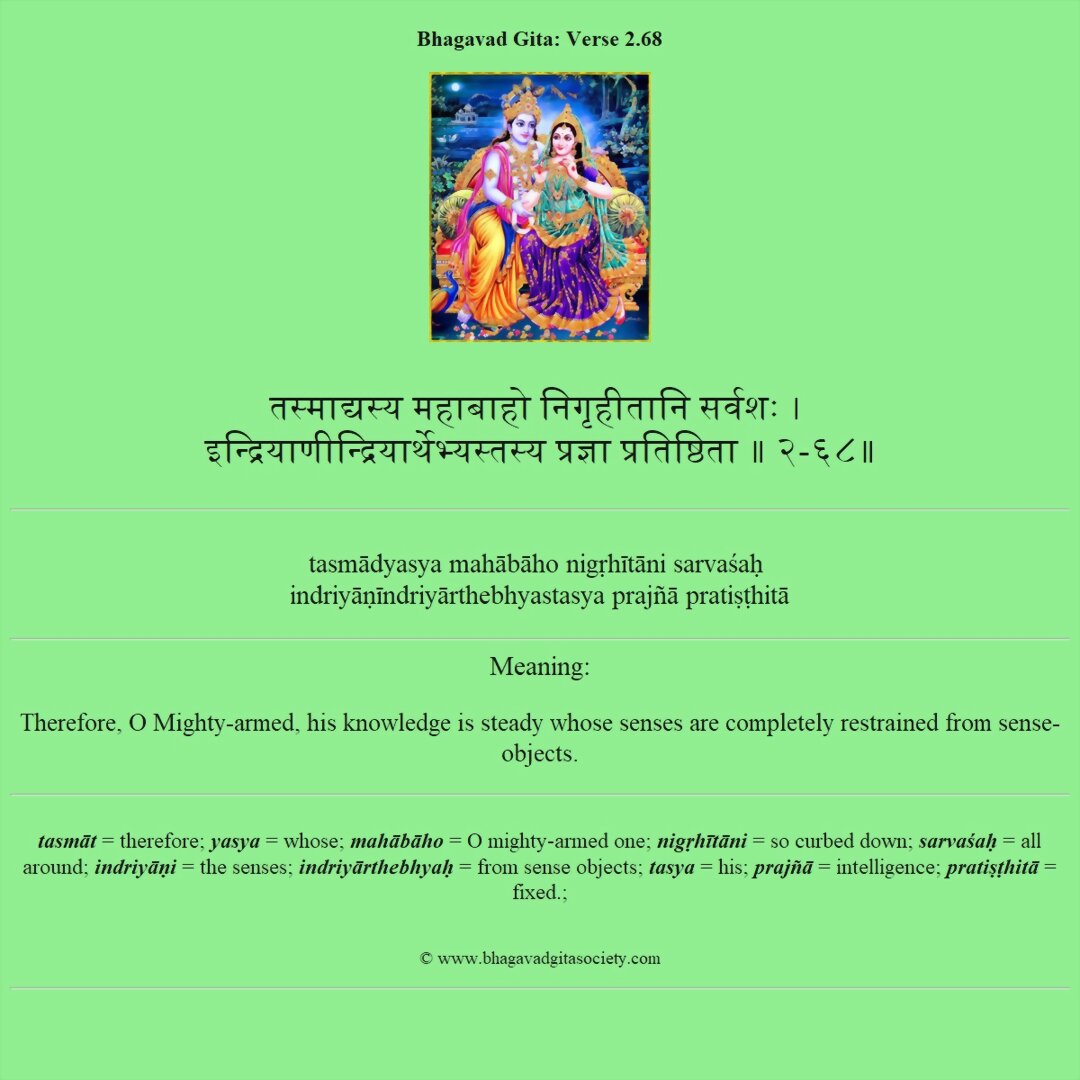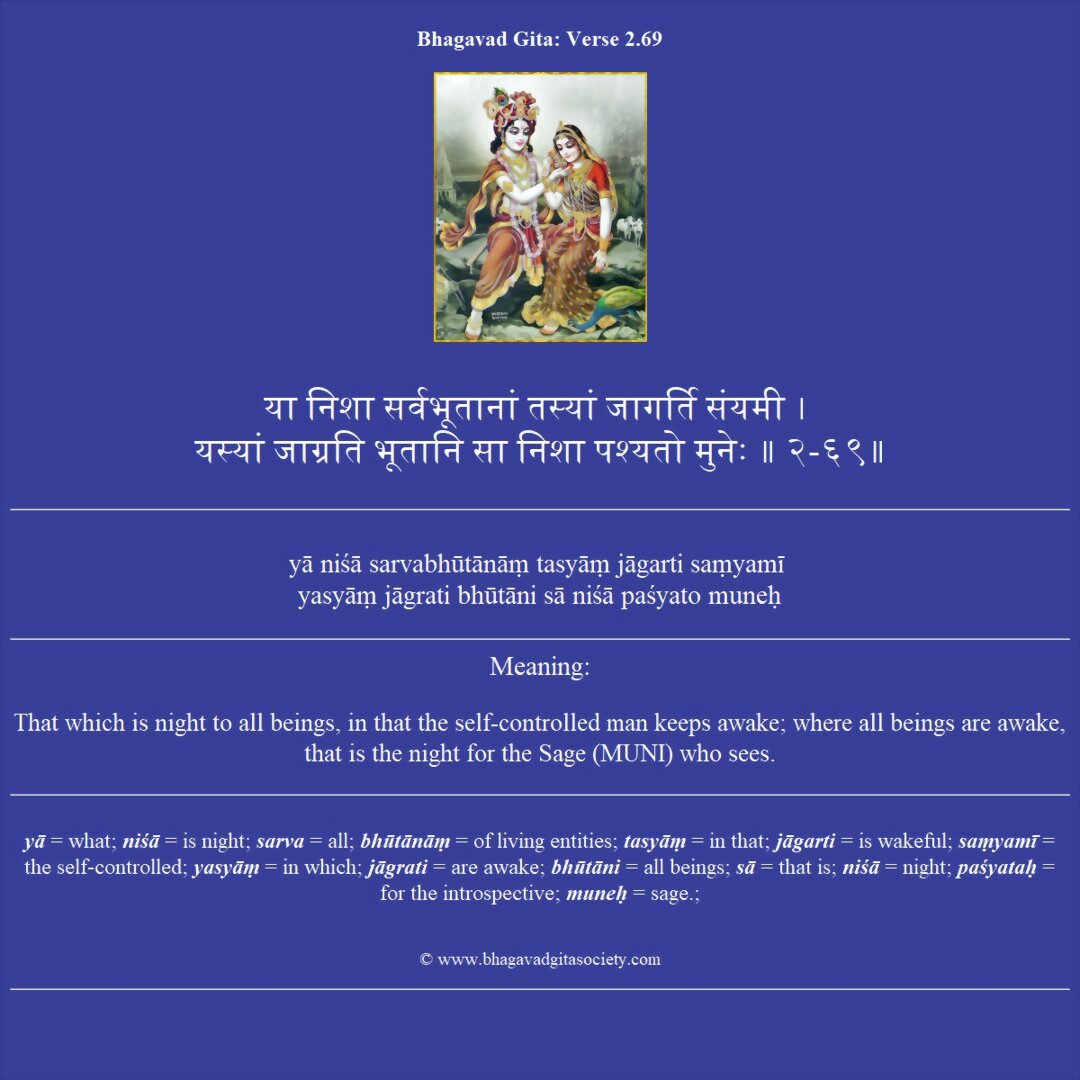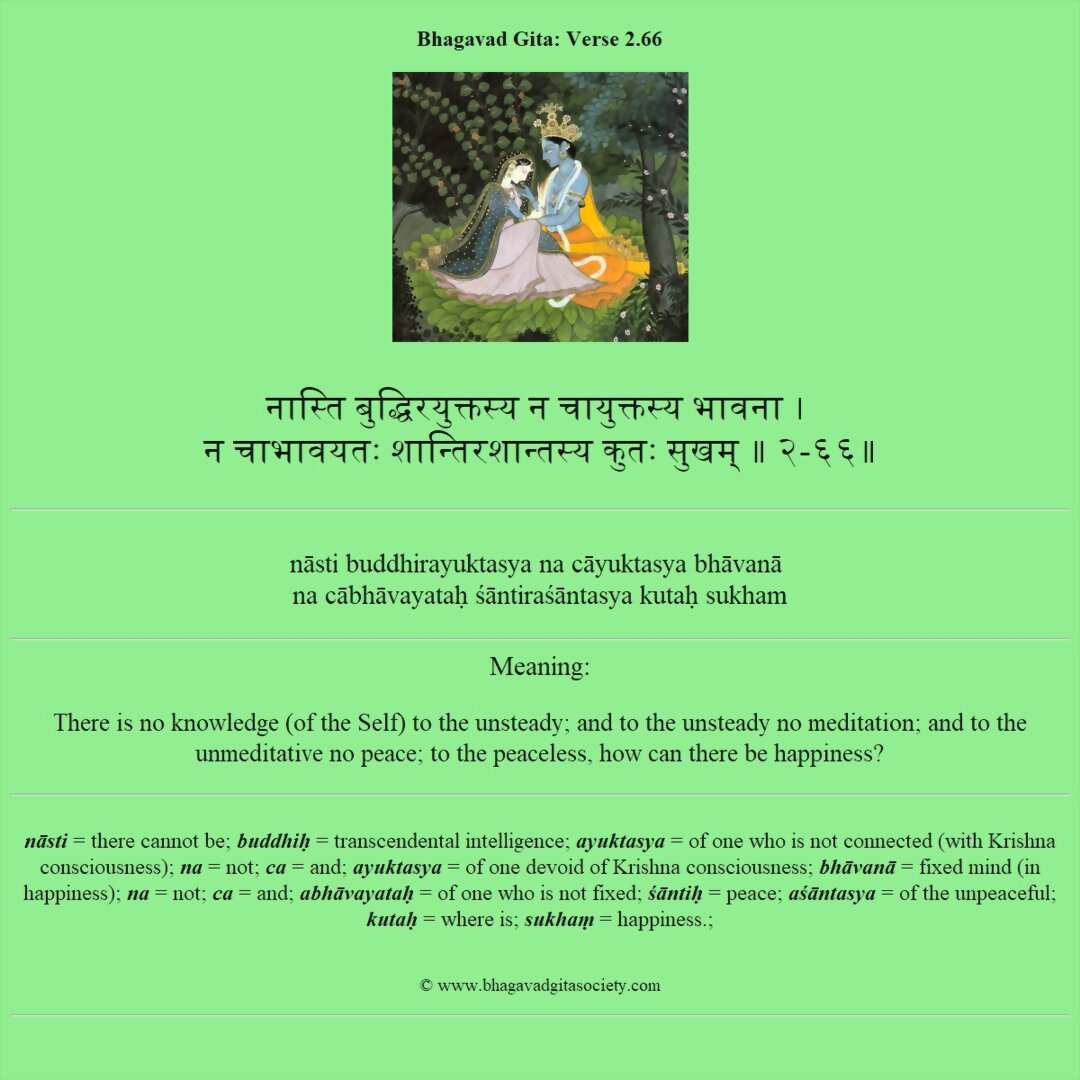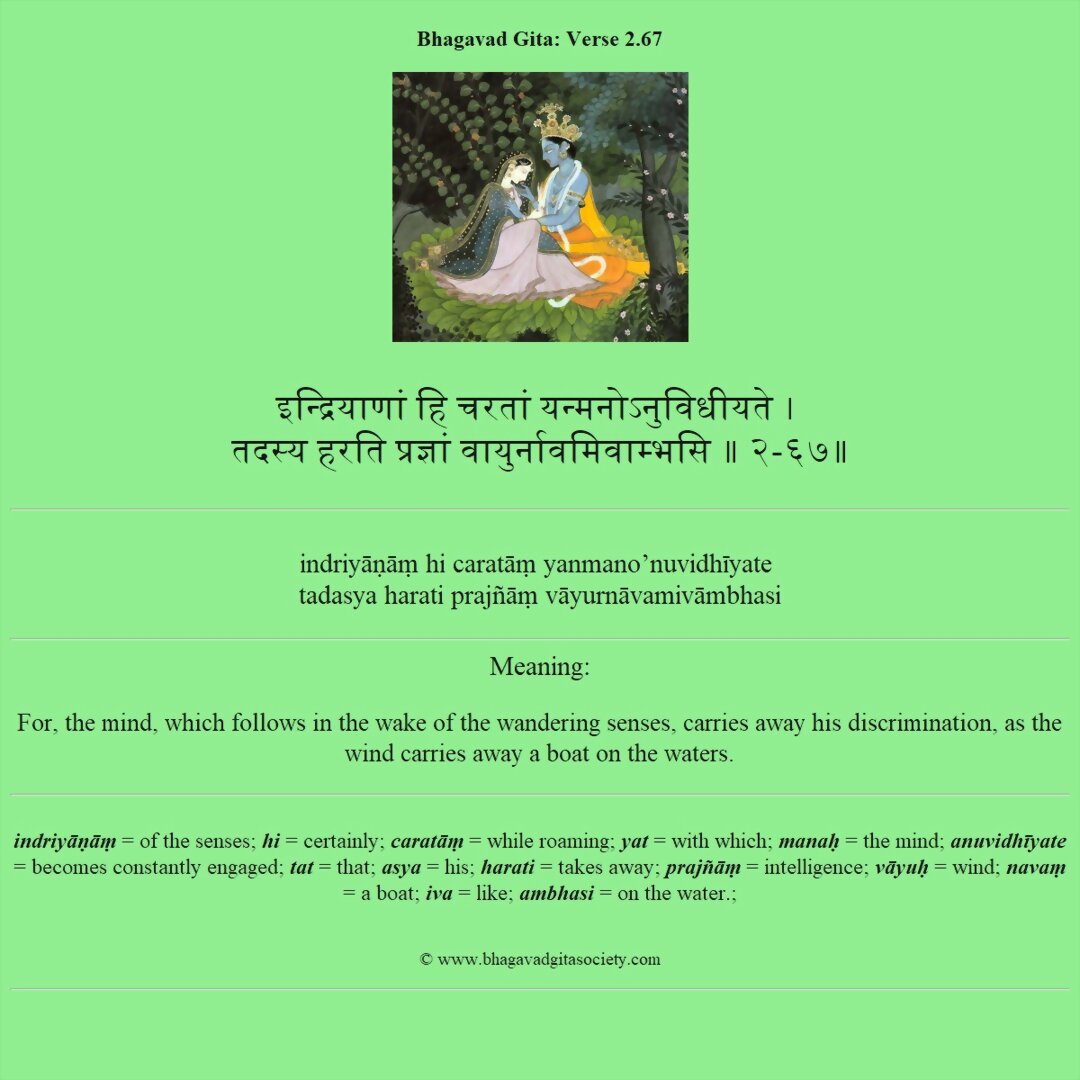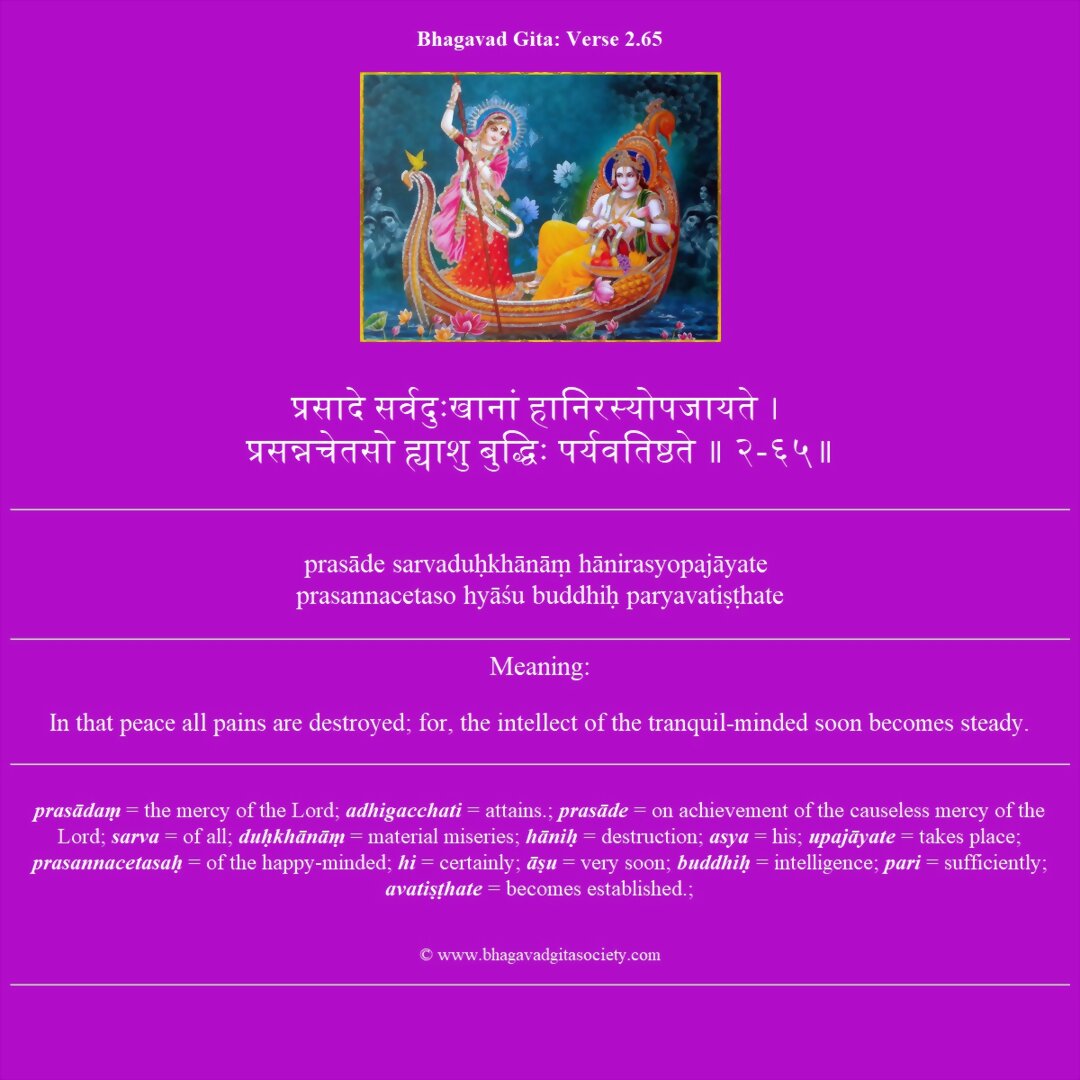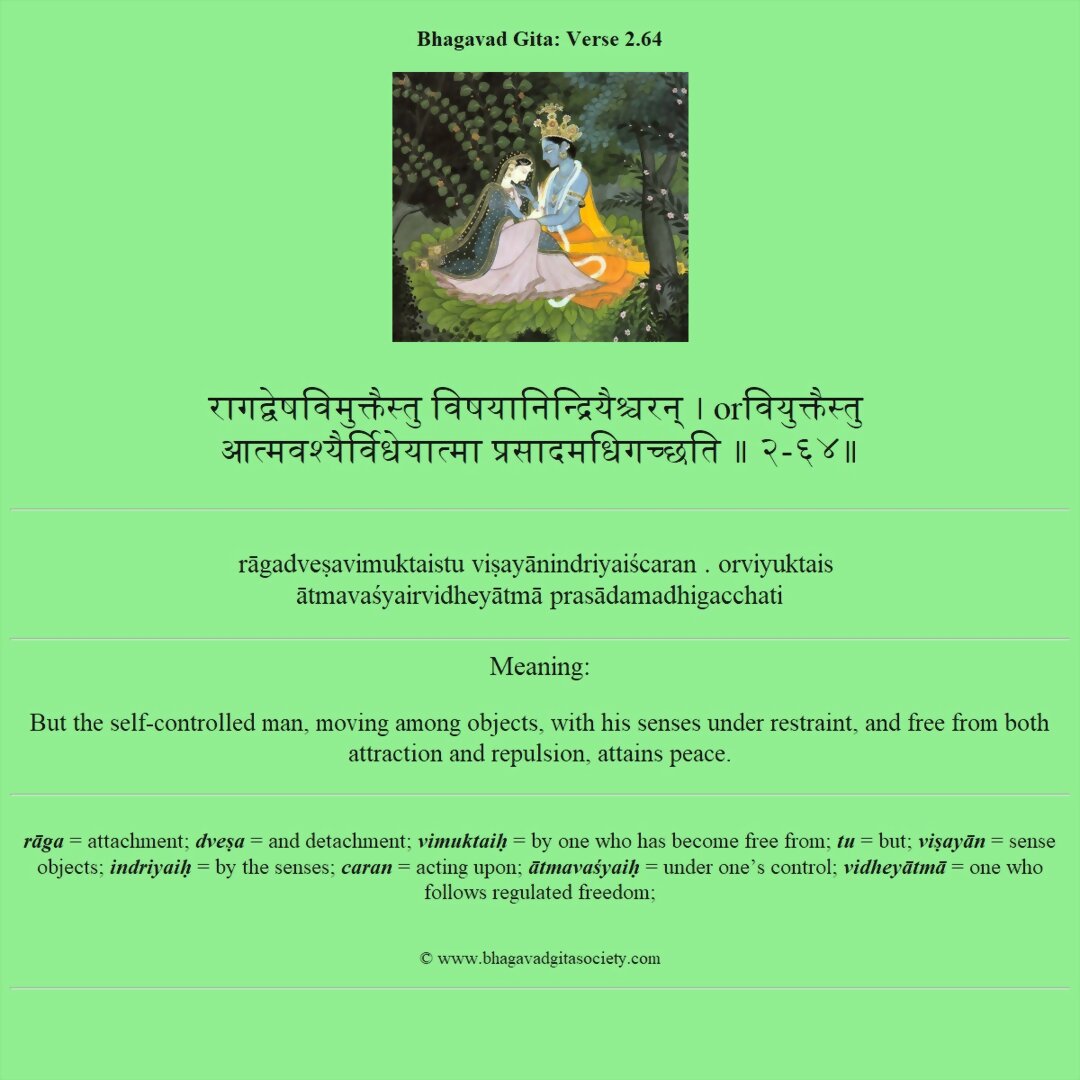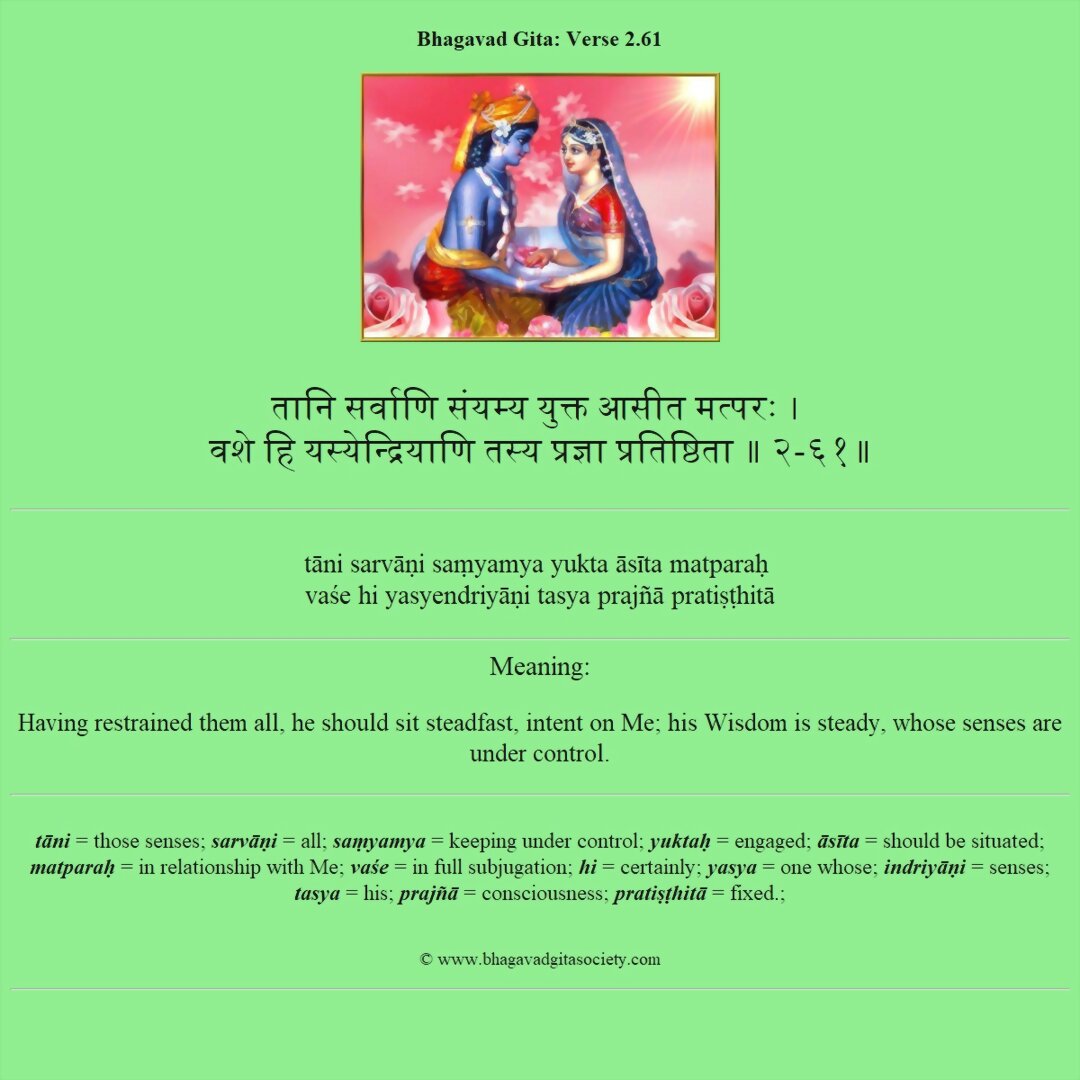Bhagavad Gita: Verse 2.71
विहाय कामान्यः सर्वान्पुमांश्चरति निःस्पृहः ।
निर्ममो निरहङ्कारः स शान्तिमधिगच्छति ॥ २-७१॥
vihāya kāmānyaḥ sarvānpumāṃścarati niḥspṛhaḥ
nirmamo nirahaṅkāraḥ sa śāntimadhigacchati
Meaning:
That man attains peace who, abandoning all desires, moves about without longing, without the sense of ‘l-ness’ and ‘my-ness. ‘
vihāya = giving up; kāmān = material desires for sense gratification; yaḥ = who; sarvān = all; pumān = a person; carati = lives; niḥspṛhaḥ = desireless; nirmamaḥ = without a sense of proprietorship; nirahaṅkāraḥ = without false ego; saḥ = he; śāntiṃ = perfect peace; adhigacchati = attains.;
